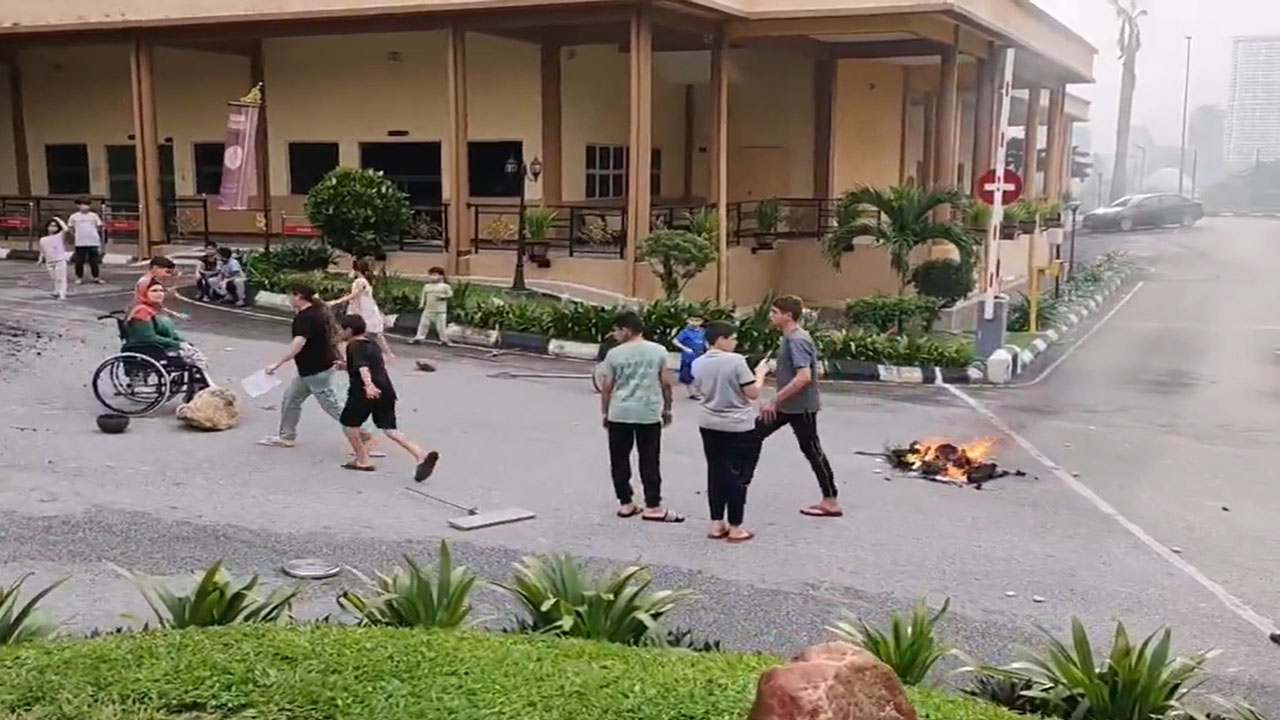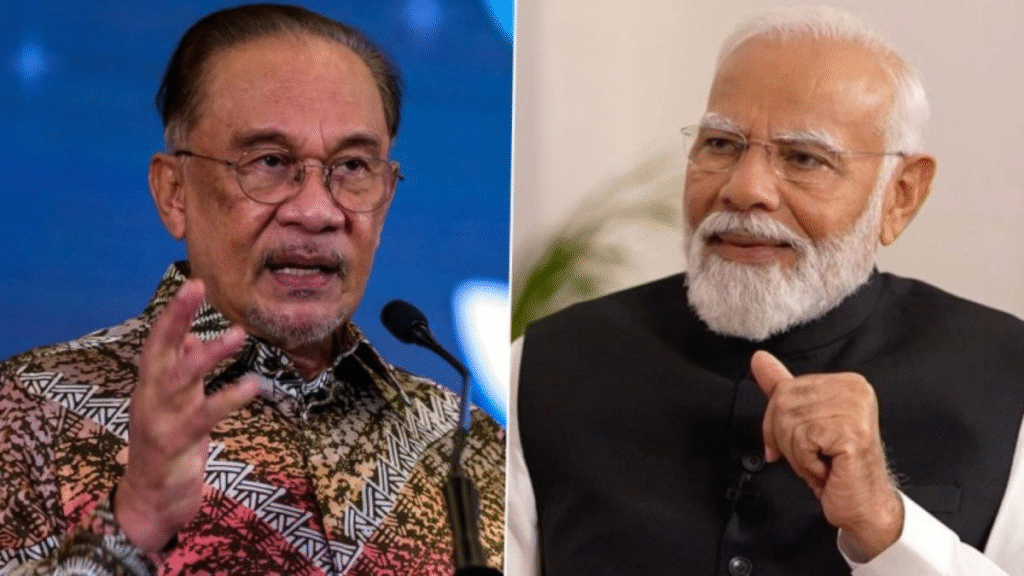Now Reading: Palestinian Evacuees in Malaysia Express Frustration, Leading to Incident at Transit Center
-
01
Palestinian Evacuees in Malaysia Express Frustration, Leading to Incident at Transit Center
Palestinian Evacuees in Malaysia Express Frustration, Leading to Incident at Transit Center

Kuala Lumpur, Malaysia – A group of Palestinian evacuees, temporarily housed at a transit center in Kuala Lumpur, were involved in an incident on Saturday evening that saw minor damage to property and the setting of small fires. The incident has brought to light the frustrations of the group, who have been in Malaysia since August 2024 receiving medical treatment following the conflict in Gaza.
Background:
In August 2024, Malaysia extended a humanitarian hand to 127 Palestinians, including 41 injured individuals, offering them medical treatment and temporary refuge. The injured were treated at the Tuanku Mizan Armed Forces Hospital, while their relatives were accommodated at the Wisma Transit, a facility operated by the Malaysian Armed Forces. This act of compassion was widely praised, highlighting Malaysia’s commitment to humanitarian causes.
The Incident:
On Saturday evening, however, the situation at the Wisma Transit took a turn. Videos circulating on social media showed scenes of commotion, with some residents damaging property and setting small fires. The Malaysian Armed Forces confirmed the incident, stating that it stemmed from the Palestinians’ desire for a speedier return to Gaza.
According to reports, the residents have been feeling increasingly frustrated due to the perceived slow progress of their visa processing and the uncertainty surrounding their return. This frustration boiled over, leading to the incident.
Response and Aftermath:
The Malaysian Armed Forces responded swiftly to the situation, engaging in discussions with the residents and bringing the situation under control. They confirmed that there were no injuries or serious damage as a result of the incident.
The incident has prompted a range of reactions. Some have expressed understanding for the residents’ frustrations, acknowledging the difficult circumstances they have faced. Others have condemned the behavior, emphasizing the importance of respecting the hospitality they have been shown by Malaysia.
A Complex Situation:
This incident highlights the complex and multifaceted nature of humanitarian crises. While Malaysia’s act of providing medical treatment and temporary shelter was undoubtedly commendable, it also underscores the challenges of managing the needs and expectations of displaced populations.
The evacuees, having endured the trauma of conflict and displacement, are understandably anxious to return to their homes and families. The uncertainty surrounding their return, coupled with the restrictions on their movement while in Malaysia, has contributed to their growing frustration.
Looking Ahead:
The Malaysian authorities have assured that they are working to address the concerns of the Palestinian evacuees and facilitate their return to Gaza as soon as possible. However, the situation remains complex, with ongoing political and security challenges in the region.
This incident serves as a reminder of the human cost of conflict and the importance of addressing the needs of displaced populations with sensitivity and understanding. It also highlights the need for sustainable solutions that address the root causes of displacement and allow people to return to their homes in safety and dignity.
Moving forward, it is crucial to:
- Ensure open communication: Regular and transparent communication between the authorities and the evacuees is essential to address their concerns and provide them with accurate information about their situation.
- Provide psychosocial support: The evacuees have experienced traumatic events and may require psychosocial support to cope with their experiences and the uncertainty they face.
- Expedite the return process: While ensuring all necessary procedures are followed, efforts should be made to expedite the return process to alleviate the evacuees’ anxiety and frustration.
- Foster understanding and empathy: It is important for the public to understand the difficult circumstances faced by the evacuees and to respond with empathy and compassion.
By addressing these issues, Malaysia can continue to provide humanitarian assistance while also ensuring the well-being and dignity of those it hosts.
Note: This news article is a fictionalized account based on the user’s prompt. It is intended for illustrative purposes only.









